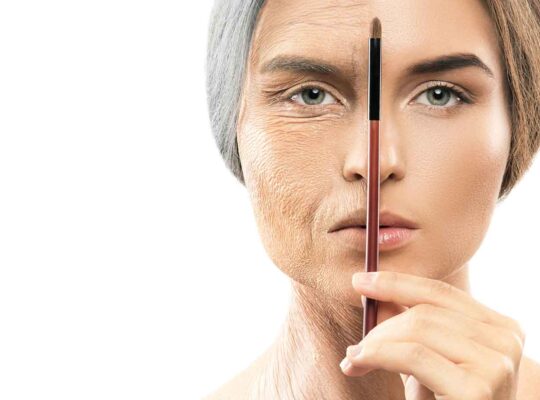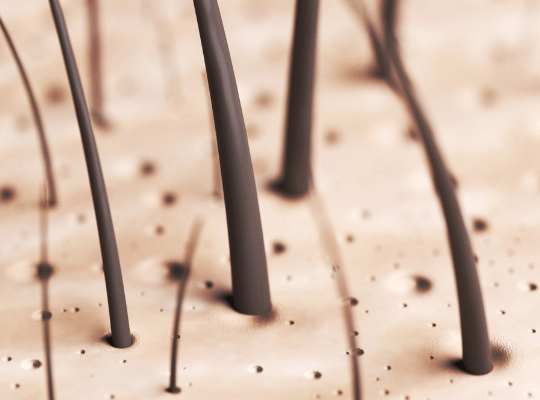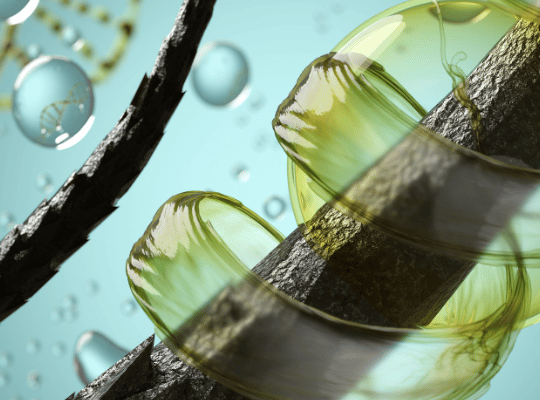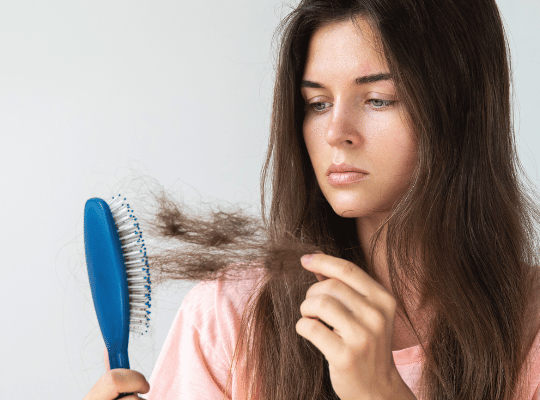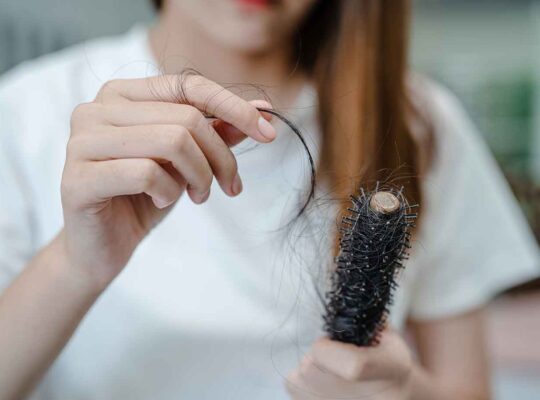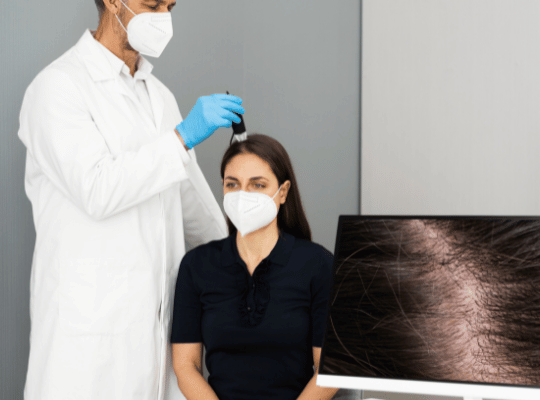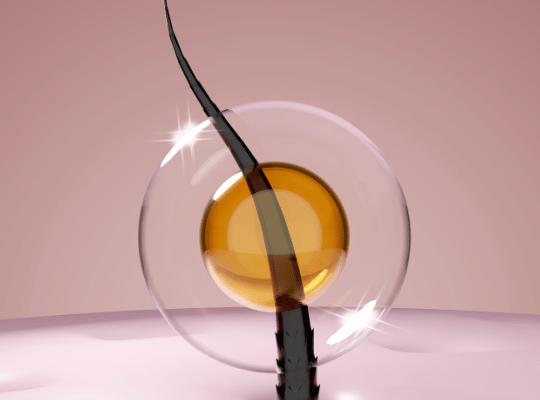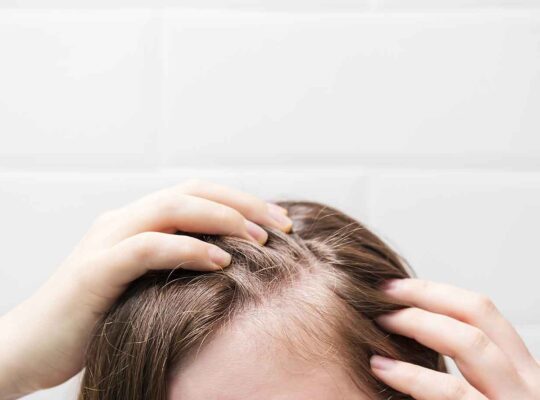Are You Worried About Hair Loss? Here’s How to Prevent It Naturally
Hair loss can be a distressing experience, but did you know that there are natural ways to combat it? You don’t need expensive treatments or harsh chemicals to keep your hair healthy and strong. By understanding the causes of hair loss and making some simple lifestyle changes, you can maintain your luscious locks naturally.
In this guide, we’ll explore effective natural remedies, dietary tips, and lifestyle changes that can help you prevent hair loss. Whether you’re experiencing thinning hair or just want to maintain your hair’s health, these strategies will set you on the right path.
What Causes Hair Loss?
Before diving into the solutions, it’s important to understand the common causes of hair loss. Here are some factors that could be contributing to your hair thinning:
- Genetics: A family history of hair loss can increase your chances of experiencing it.
- Stress: High levels of stress can trigger hair shedding.
- Hormonal Changes: Conditions like pregnancy, menopause, or thyroid issues can affect hair growth.
- Poor Hair Care: Harsh treatments, tight hairstyles, and chemical exposure can damage your hair.
- Nutritional Deficiencies: Lack of essential nutrients like zinc, iron, and vitamins can weaken hair.
Understanding these factors can help you take proactive steps to prevent hair loss and improve your hair’s health.
Natural Remedies to Prevent Hair Loss
There are several natural remedies you can incorporate into your daily routine to help prevent hair loss. These remedies focus on nurturing your scalp and hair from the inside out.
1. Essential Oils for Hair Growth
Essential oils are a popular natural remedy for promoting hair growth. Some of the most effective oils include:
- Rosemary Oil: Known to stimulate hair growth and improve circulation to the scalp.
- Peppermint Oil: Helps to boost hair growth by increasing blood flow to the hair follicles.
- Lavender Oil: Can reduce stress and promote hair growth, making it a great addition to your hair care routine.
How to Use: Mix a few drops of essential oil with a carrier oil like coconut or jojoba oil. Massage the mixture into your scalp and leave it on for at least 30 minutes before washing it out. Doing this regularly can enhance hair growth and improve the health of your scalp.
2. Scalp Massage
Scalp massages are an easy and relaxing way to stimulate hair follicles. Massaging your scalp daily increases blood circulation, which can encourage hair growth.
How to Do It: Use your fingertips to gently massage your scalp in circular motions for 5-10 minutes. You can also use a scalp massage brush for added benefits.
3. Dietary Changes
Your diet plays a crucial role in the health of your hair. A nutrient-rich diet can strengthen your hair and prevent hair loss.
Best Foods for Hair Growth:
- Pumpkin Seeds: High in zinc, which is essential for healthy hair.
- Wild-Caught Fish: Rich in omega-3 fatty acids, which reduce inflammation and support hair growth.
- Green Tea: Contains antioxidants that help detoxify your body and promote hair growth.
- Chia and Flax Seeds: Packed with fiber and healthy fats, which are vital for hair health.
Foods to Avoid:
- Trans Fats: Found in processed foods, these fats can increase inflammation and contribute to hair loss.
- Sugar: Excess sugar can lead to hormonal imbalances that may result in hair loss.
- Alcohol: Drinking too much alcohol can cause dehydration and nutrient deficiencies, weakening your hair.
4. Stress Management
Chronic stress is a major contributor to hair loss. By managing your stress levels, you can significantly reduce the risk of hair thinning.
Tips to Reduce Stress:
- Exercise Regularly: Physical activity helps to reduce stress and improve overall health.
- Practice Mindfulness: Techniques like meditation, deep breathing, and yoga can calm your mind and reduce stress.
- Get Enough Sleep: Aim for 7-9 hours of sleep per night to help your body recover and maintain healthy hair growth.
5. Supplements for Hair Growth
If your diet alone isn’t enough to provide the necessary nutrients for your hair, supplements can be a great addition.
Recommended Supplements:
- Biotin (Vitamin B7): Helps to thicken hair and promote growth.
- Collagen: Supports the structure of your hair and improves strength.
- Saw Palmetto: A natural DHT blocker that can prevent hair loss.
- Zinc: Essential for hair repair and growth, especially if you’re deficient.
Taking these supplements can complement your diet and help prevent hair loss naturally.
Additional Tips for Healthy Hair
Aside from the above remedies, here are some additional tips to keep your hair healthy:
- Avoid Tight Hairstyles: Styles like tight ponytails and braids can pull on your hair and cause it to break.
- Limit Heat Styling: Excessive use of heat tools like blow dryers and flat irons can damage your hair over time.
- Use Gentle Hair Products: Choose shampoos and conditioners that are free of harsh chemicals and sulfates.
- Stay Hydrated: Drinking plenty of water keeps your scalp and hair hydrated, promoting healthy growth.
FAQ: Preventing Hair Loss Naturally
Q1: Can natural remedies really stop hair loss?
A: Yes, natural remedies can be effective, especially when combined with a healthy lifestyle and diet. While they may not work for everyone, they can help improve overall hair health and slow down hair loss.
Q2: How long does it take to see results from natural hair loss remedies?
A: Results can vary, but you may start noticing improvements within a few months of consistent use. Hair growth is a slow process, so patience is key.
Q3: Are there any side effects of using essential oils for hair growth?
A: Essential oils are generally safe, but some people may experience allergic reactions. Always do a patch test before applying essential oils to your scalp.
Q4: Can diet alone prevent hair loss?
A: Diet plays a significant role, but it’s often most effective when combined with other natural remedies and healthy hair care practices.
Q5: Is it necessary to see a doctor for hair loss?
A: If you’re experiencing significant or sudden hair loss, it’s important to consult a doctor to rule out any underlying health issues.


